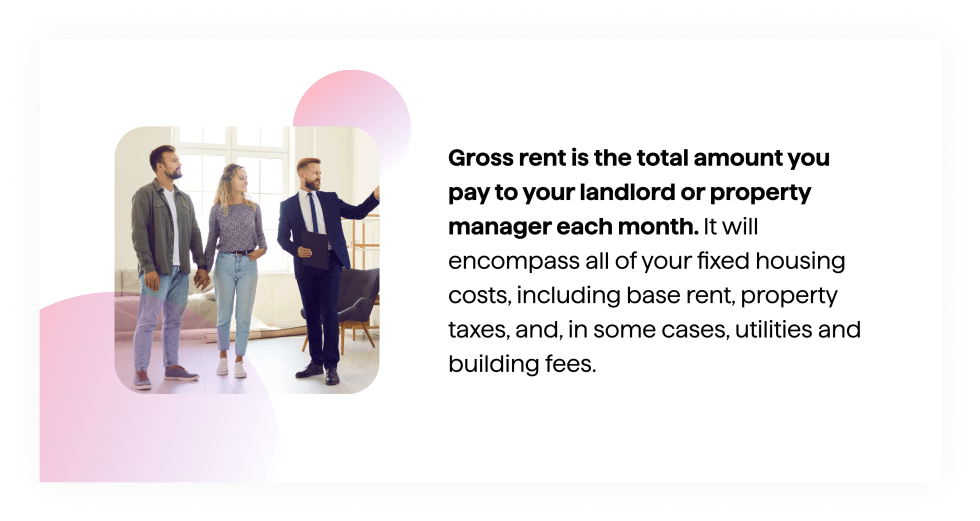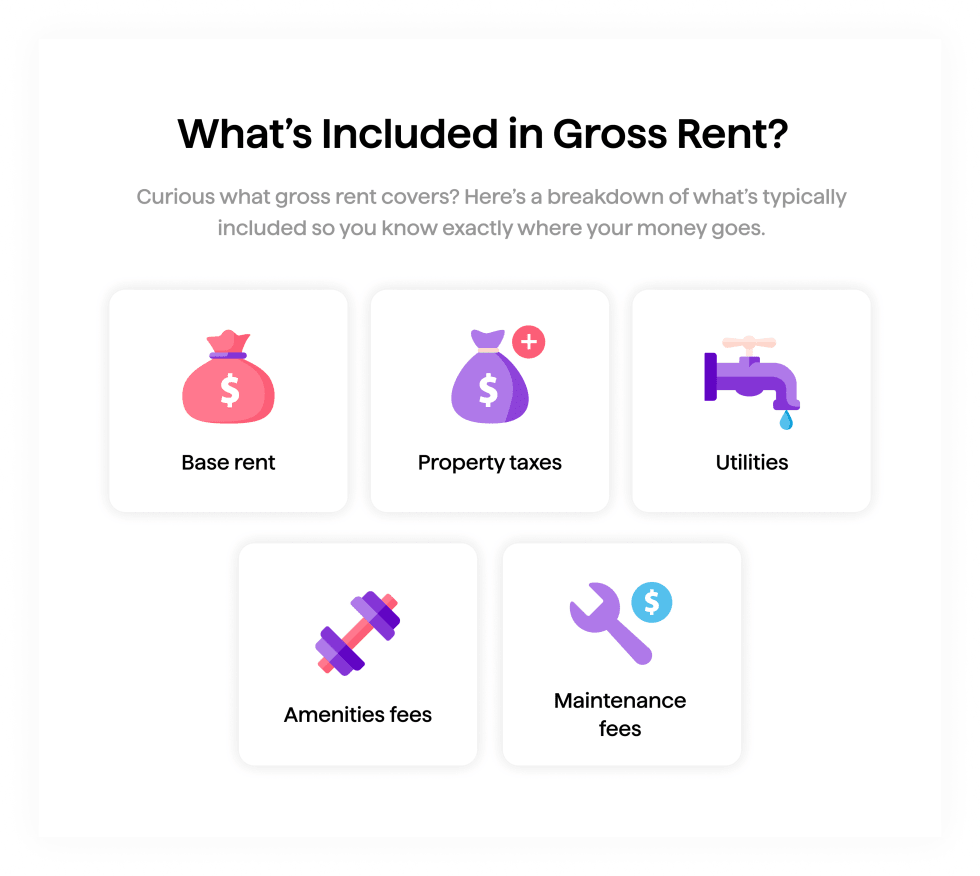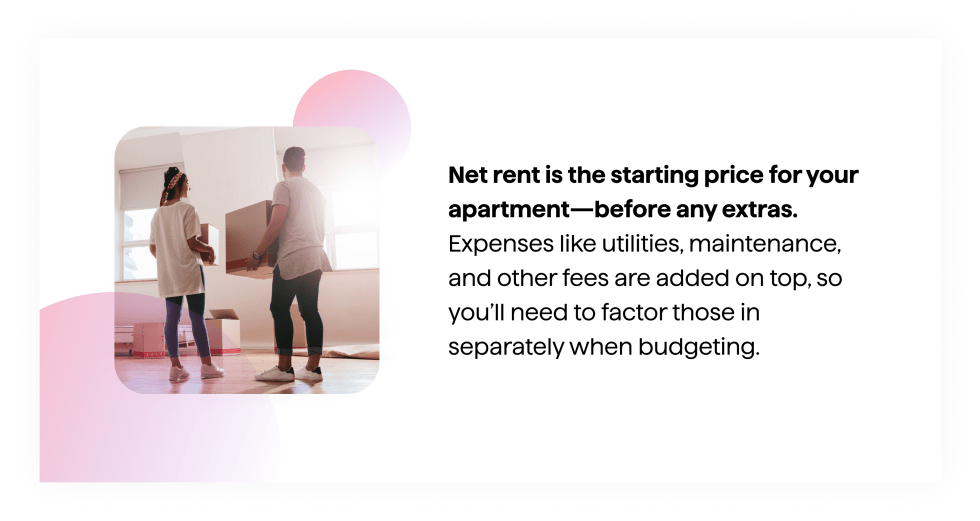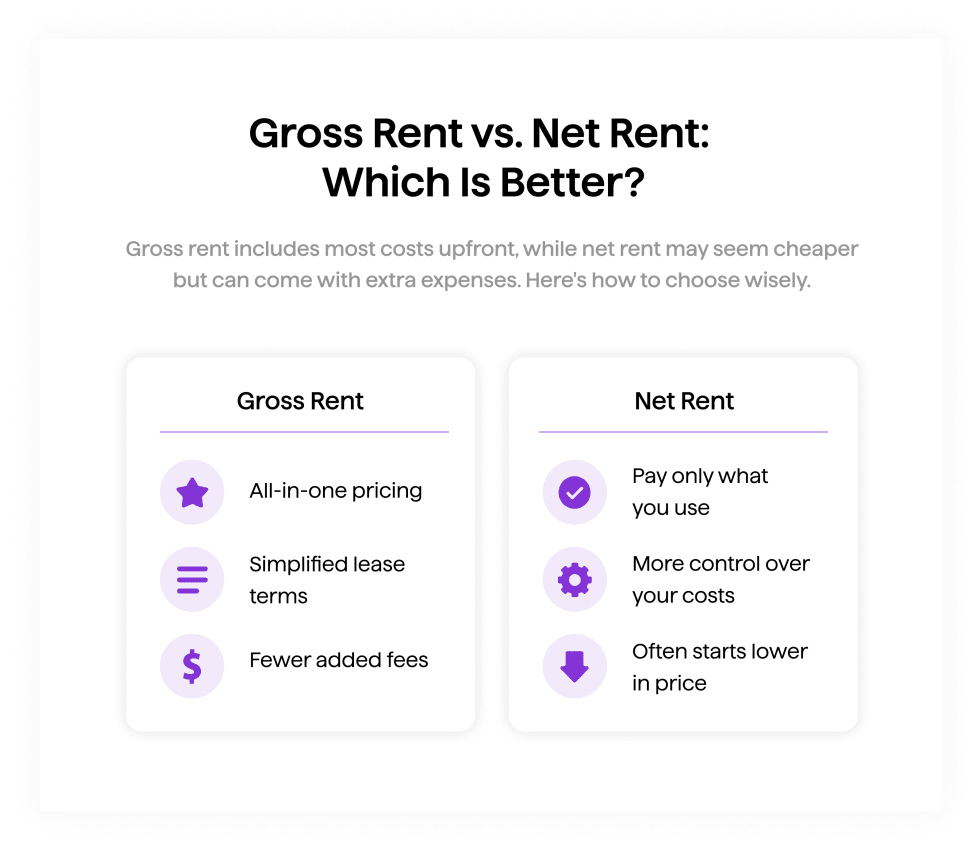South Bank at Quarry Trails
- 92 units available
- Studio • 1 bed • 2 bed • 3 bed
- Amenities
In unit laundry, Patio / balcony, Granite counters, Pet friendly, Stainless steel, Walk in closets + more

Trying to figure out the difference between gross rent vs. net rent? Renting an apartment is more than signing a lease and figuring out how to budget for rent and utilities. It’s also important to know the terms "gross rent" and "net rent" and the impact they make on your wallet.
If you’re a renter, knowing the difference can help you plan and avoid unexpected costs to keep your monthly expenses in check. We did all the research for you to answer the question of gross rent vs. net rent to put you on the right track for your next apartment.
Gross rent is the total amount you pay to your landlord or property manager each month. It will encompass all of your fixed housing costs, including base rent, property taxes, and, in some cases, utilities and building fees. When you see an apartment listed with "gross rent," it means there are no additional charges beyond that set monthly amount unless stated otherwise.

In most cases, your gross rent will include:
Gross rent doesn’t always cover all the rent fees you’ll pay for your apartment. It’s important to look over your lease agreement to determine exactly what it covers.

Renters may prefer gross rent over net rent for the perks it offers. There are predictable monthly costs that make it easier to budget and plan. You also won’t have as many details to go over in your lease agreement in terms of additional fees and charges.
Net rent is the base rent amount before adding in any extra expenses. It doesn’t include utility costs, maintenance fees, or other charges. Renters will need to pay all of these things separately, which may make organizing your finances more complicated.

If you’re a first-time renter, here are some of the costs you’ll need to consider when paying net rent.
Every lease looks different, so it’s important to review your agreement to see what you’ll be paying.
There are some reasons why landlords prefer to use net rent over gross rent:
It’s important to ask if the landlord is advertising gross or net rent before making a decision about whether your budget can sustain the apartment.
An apartment with a lower net rent might seem like a great deal, but if you’re responsible for utilities, taxes, and fees, it could end up costing more than an apartment with gross rent.
If you’re not sure how to approach your apartment search, here are some questions to ask a landlord or community manager:
Bring along a notebook or ask if they have an FAQ sheet about the rent to compile all of the information you need.

To visualize how the two rent types work, here’s an example of the two pricing structures:
Even though Apartment B seems cheaper at first, the total cost ends up being $1,900 per month, making Apartment A the better deal.
Whether gross or net rent is better depends on your preferences and financial situation. You may choose gross rent if you prefer one fixed price without worrying about fluctuating costs. If you want more control over your spending and don’t mind having to pay bills separately, go with net rent.
Now that you know what gross rent vs. net rent is, you can start your apartment hunt based on budget, amenities, and other preferences. Start browsing our apartments today, or take our quick quiz to narrow your search. With Apartment List, you’ll spend five minutes and save 50 hours searching.
Not always. Some gross rent agreements include utilities like water and heat, while others only cover base rent and building fees. Always check your lease to see what’s included.
Net rent appears lower because it doesn’t include extra costs like utilities or maintenance fees in the price. Once those are added, net rent may end up costing significantly more.
Gross rent may be better for budgeting since it is based on a fixed monthly amount. With net rent, costs may vary depending on utility usage and other fluctuating fees.
It depends on the lease agreement. If your lease specifies gross rent, the landlord cannot change it mid-lease. However, when renewing, they may switch to a net rent structure.
Calculate all extra expenses (e.g., utilities, building fees, and maintenance costs) for net-rent properties. Then, compare the total cost to an apartment offering gross rent to see which is more affordable.


In unit laundry, Patio / balcony, Granite counters, Pet friendly, Stainless steel, Walk in closets + more
In unit laundry, Hardwood floors, Dishwasher, 24hr maintenance, Stainless steel, Walk in closets + more